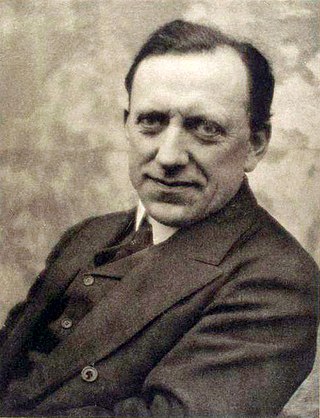
Frederic Harrison was a British jurist and historian.

Francis Jeffrey, Lord Jeffrey was a Scottish judge and literary critic.
Sir James Thomas Knowles was an English architect and editor. He was intimate with the poet Alfred, Lord Tennyson and the founder of the Metaphysical Society to encourage rapprochement between religion and science.

Henry Alford was an English churchman, theologian, textual critic, scholar, poet, hymnodist, and writer.
The Metaphysical Society was a famous British debating society, founded in 1869 by James Knowles, who acted as Secretary. Membership was by invitation only, and was exclusively male. Many of its members were prominent clergymen, philosophers, and politicians.

The Columbia University Graduate School of Journalism is located in Pulitzer Hall on the university's Morningside Heights campus in New York City. Founded in 1912 by Joseph Pulitzer, Columbia Journalism School is one of the oldest journalism schools in the world and the only journalism school in the Ivy League. It offers four graduate degree programs.
The Tablet is a Catholic international weekly review published in London. Brendan Walsh, previously literary editor and then acting editor, was appointed editor in July 2017.

James Louis Garvin was a British journalist, editor, and author. In 1908, Garvin agreed to take over the editorship of the Sunday newspaper The Observer, revolutionising Sunday journalism and restoring the paper, which was facing financial troubles at the time, to profitability in the process.

William Hurrell Mallock was an English novelist and economics writer. Much of his writing is in support of the Roman Catholic Church and in opposition to positivist philosophy and socialism.

The London Magazine is the title of six different publications that have appeared in succession since 1732. All six have focused on the arts, literature and poetry. A number of Nobel Laureates, including Annie Ernaux, Albert Camus, Doris Lessing, and Nadine Gordimer have been published in its pages. It is England's oldest literary journal.
The Yale Review is the oldest literary journal in the United States. It is published by Johns Hopkins University Press.

Commonweal is a liberal Catholic journal of opinion, edited and managed by lay people, headquartered in New York City. It is the oldest independent Catholic journal of opinion in the United States.

Leon Pratt Alford was an American mechanical engineer, organizational theorist, and administrator for the American Society of Mechanical Engineers. known for his seminal work in the field of industrial management.

Austin Frederic Harrison (1873–1928) was a British journalist and editor, best known for his editorship of The English Review from 1909 until 1923.
The Fortnightly Review was one of the most prominent and influential magazines in nineteenth-century England. It was founded in 1865 by Anthony Trollope, Frederic Harrison, Edward Spencer Beesly, and six others with an investment of £9,000; the first edition appeared on 15 May 1865. George Henry Lewes, the partner of George Eliot, was its first editor, followed by John Morley.
Deryck Robert Endsleigh Abel was a British author, editor and political activist, who was born in Salisbury, Wiltshire to Frederick and Beryl Abel. He came from a family of teachers, craftsmen and clerks; he and his parents moved to North London when he was a small boy.
Modern Church is a charitable society promoting liberal Christian theology. It defends liberal positions on a wide range of issues including gender, sexuality, interfaith relations, religion and science, and biblical scholarship. In church affairs it supports the role of laity and women ministers. Members receive the journal Modern Believing and the newsletter Signs of the Times. A substantial account of its theology is Paul Badham’s The Contemporary Challenge of Modernist Theology. From 2011-2013 it published a series of short books introducing some of its themes. It has a large website. There is a regular annual conference. The theological principles behind its liberalism are that

Ruth Alex Mitchell was a British journalist who was the "editor and driving force behind the Christian current affairs magazine Third Way". She edited Third Way for five of its first six years and "established its reputation as making a significant contribution to Christian social thinking." Her hymn "Now We Sing a Harvest Song" is in the BBC's popular hymnal Come and Praise.

The Independent was a weekly magazine published in New York City between 1848 and 1928. It was founded in order to promote Congregationalism and was also an important voice in support of abolitionism and women's suffrage. In 1924 it moved to Boston, Massachusetts.

William Samuel Lilly was an English barrister and man of letters.












